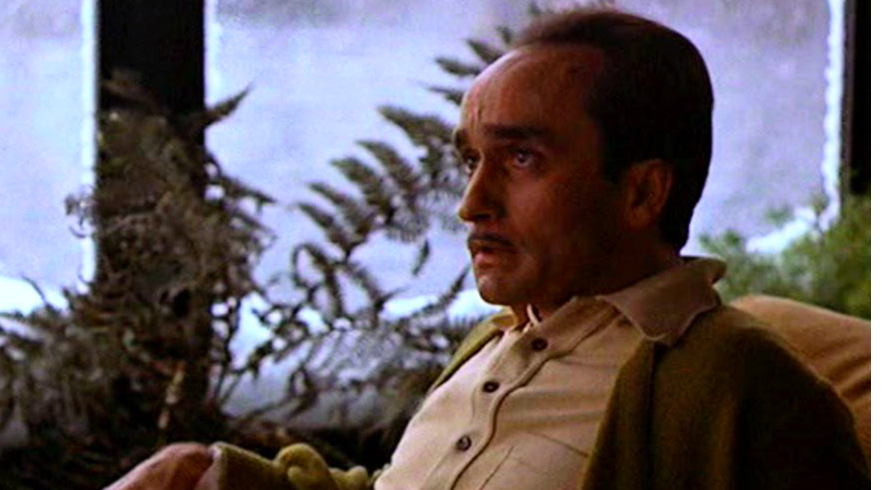John Cazale was five-for-five when he died: five big screen appearances, all of them classic performances in classic ’70s films. “The Godfather,” “The Conversation,” “The Godfather, Part II,” “Dog Day Afternoon,” and finally, “The Deer Hunter.” And then he died at 40 of of lung cancer in New York City in March, 1978, eight months before his final performance in “The Deer Hunter” was seen by the public.
Directed by Richard Shepard, a filmmaker best known for “The Matador” and the Emmy-winning pilot episode of “Ugly Betty,” “I Knew It Was You: Rediscovering John Cazale” is properly saddened by the premature demise of its subject, a talent whose star was only beginning to burn. Released in 2009, this documentary hits all the expected (and welcome) emotional buttons, particularly when soliciting praise from younger acting stars (such as Steve Buscemi, Sam Rockwell, and Philip Seymour Hoffman—another great talent lost too soon, only five years after this movie came out). We also hear from big-name contemporaries who worked opposite Cazale onscreen. One is Al Pacino, a scene partner in two “Godfather” films who says ““I think I learned more about acting from John than anybody.” Another is Meryl Streep, who was living with Cazale at the time of his death. Streep offers some of the film’s most moving and revelatory insights into his temperament and personality.
In the end, though, this short (40 minute!) film is valuable mostly for its insights into the specifics of acting for the screen. So many biographies of actors, whether legendary or (like Cazale) more cultish, tend to slide into meaningless superlatives, platitudes, and acting-class philosophizing, none of which means anything to anyone who isn’t already an actor. That’s not the case here. This movie takes you inside the process, inside the craft, the job, and shows that it’s about bravery, knowledge, skill, and choices.
A constant refrain is Cazale’s willingness to be transparent and take the audience inside of his characters’ hurt, without doing anything that might subliminally reassure viewers that the actor is cooler and more confident than the person he’s playing. We see Cazale doing that in film after film, to the point where it becomes undeniable that this is not just a thing he did to stand out, but part of a larger philosophy about what good acting was, and how it could connect emotionally and intellectually with audiences.
Shepard has spent much of his career directing actors in tonally specific projects, in which a single misplaced bit of body language or dropped syllable might ruin the intent of an exchange. He brings that practical knowledge to bear, seemingly going out of his way to ask for observable examples every time he’s interviewing performers about what made Cazale special. Without fail, his subjects deliver, often in the manner of the sorts of schoolteachers we remember fondly because they never talked down to us.
The clips back them up, often in the manner of footage from a sports match that merges with the announcer’s play-by-play to create a series of “Aha!” moments. Among the best is the section that takes apart the great scene in “The Godfather, Part II” where Fredo is having an emotional meltdown in the presence of Pacino’s Michael in a wide-windowed study at the Corleone family compound in Lake Tahoe while snow falls in the background. The position of the actors to one another matters a great deal—particularly the way Cazale is reclining in a chair close to the floor. His visually recessive or “defeated” position emphasizes his helplessness in the face of Michael at that moment, and in relation to Michael’s confidence generally, as well as his bottomless pain and damage at feeling like he’d been underestimated and passed over by their father throughout their lives.
It’s not until you watch this scene with commentary from other actors that you put all of these pieces together—including the way Cazale’s slight bobbing as he whines and gesticulates reminds you of an infant in a bouncy seat—and realize that it’s not just movie magic that’s making you want to look away from the screen in mortification at Fredo’s helplessness, it’s the accumulation of conscious and instinctual choices made by actors at the top of their game. This is one of the best documentaries about acting you’ll ever see. The only thing that can really be said against it is that one wishes it were longer, but given the subject matter, ending the story before we were ready feels sadly correct.












